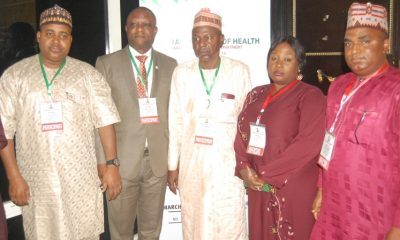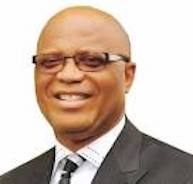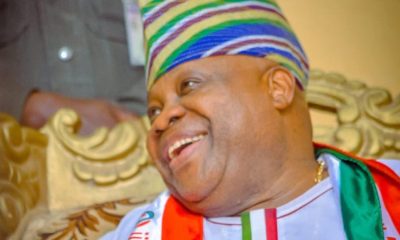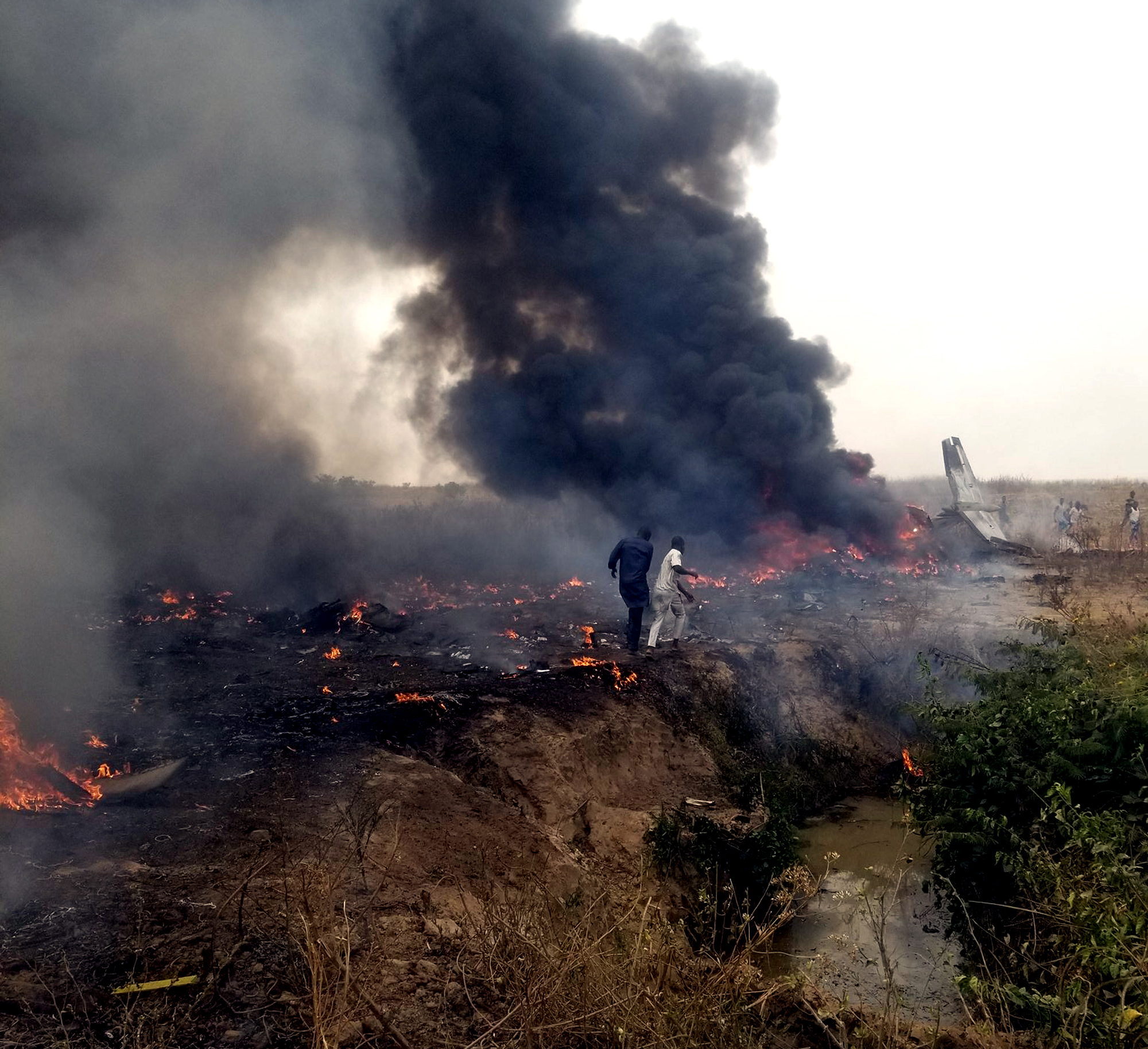BUSINESS
FG to Spend N3.53trn on Human Capital Dev’t, Infrastructure in 2022 – Fin Minister

By Tony Obiechina, Abuja
The Federal government plans to spend about N2.11 trillion on human capital development and another N1.42 trillion on infrastructure in the 2022 fiscal year alone, Finance Minister, Budget and National Planning, Mrs Zainab Ahmed has disclosed.
The Minister who made the revelation at a Town Hall meeting on the achievements of her ministry held in Abuja on Tuesday, said this administration will continue to prioritize spending on infrastructure and human capital to catalyze rapid economic development.
She also disclosed that commencement of Road Infrastructure Development and Refurbishment Investment Tax Credit Scheme in 2019, with the approval of the President, 19 Road Projects covering 769.
16 km and located in 11 states across the six geopolitical zones.She said subsequently work commenced with the reconstruction of the Apapa-Oshodi-Oworonshoki-Ojota Road in Lagos State (34 km), re-construction of Obajana-Kabba road (43km) in Kogi state – both invested in and undertaken by Dangote Industries Limited, while the Nigerian Liquefied Natural Gas (NLNG) Limited undertook the construction of the Bodo-Bonny road and the bridges across the Opobo channel in Rivers state (40 km).
According to her, since the inception of the RITCS, the President has approved 14 additional roads, bringing the total to thirty-three (33) Road Projects, covering a total length of 1,564.95 km as of 2021, adding that,”these additional projects are in 19 States across the six (6) geo-political zones in the country”.
” In the last three years (2019 – 2021), about N78 billion worth of tax credits have been issued to investors under the RITCS. In addition, the NNPC is to finance the construction of 21 roads across the country”, the Mrs Ahmed said.
In the healthcare sector, the Minister said, “we have completed three (3) infrastructure projects worth US$22.5 million, which include the NSIA-LUTH Oncology Centre, which has provided services to over 4,000 patients since its commissioning. The NSIA-FMCU and the NSIA-AKTH Diagnostic Centres – two (2) ultra-modern facilities located at Abia and Kano states. Furthermore, both diagnostic centres have provided services to over 47,000 clients.
“Through the Nigeria Mortgage Refinance Company (NMRC) and the Family Homes Funds (FMF), the Ministry has contributed to the housing infrastructure development in the country with the implementation of the mortgage-based affordable housing scheme. In the last three years (2019 – 2021), the Scheme has recorded a total of over 13,542 houses.
“Furthermore, through the NIF, there are ongoing projects such as the Presidential Infrastructure Development Fund (PIDF), which is a US$300 million NSIA investment, established to attract capital and accelerate the completion of key infrastructure projects, which includes the Lagos-Ibadan Expressway (LIE), Second Niger Bridge (2NB), and Abuja-Kano road (AKR). Some of the projects are approaching completion with LIE at 79%, 2NB at 83% and AKR at 27%”.
The stated that Nigeria’s economy and population remain the largest in Africa with over $400 billion in GDP and over 200 million people pointing out that the country’s huge and growing population offer both an economic challenge and opportunity, in the light of constrained revenue proceeds brought on by several multi-dimensional factors, including the global pandemic and its impact on the domestic economy.
Ahmed said, “Against this backdrop of challenges, this Administration has successfully implemented a range of infrastructure programmes that have had a positive impact on the lives and livelihoods of the citizenry. During my presentation, I will highlight some of these programmes initiated by the Federal Ministry of Finance, Budget and National Planning, as well as those initiatives that the Ministry is helping to facilitate in other Ministries”.
Oil & Gas
NNPC Ltd. Records N5.8bn revenue, N748bn PAT in April

The Nigerian National Petroleum Company Limited (NNPC Ltd.) has announced a revenue of N5.89 billion and a Profit After Tax (PAT) of N748 billion for the month of April.
The NNPC Ltd. disclosed this in its Monthly Report Summary for April, released on Thursday.
The report highlights key statistics, including crude oil and condensate production, natural gas output, revenue, profit after tax and strategic initiatives during the period.
The report said that NNPC Ltd made statutory payments of N4.
22 billion between January and March.According to the report, crude oil and gas figures are provisional and reflect only NNPC Limited’s data.
It said that It excluded volumes of independent operators reported by the Nigerian Upstream Petroleum Regulatory Commission (NUPRC).
“Crude oil and condensate production averaged 1.606 million barrels per day (bpd) in April, while natural gas production was 7.354 million standard cubic feet daily.
“Petrol availability at the NNPC Ltd. retail stations recorded 54 per cent during the month under review, while upstream pipeline reliability was 97 per cent,” it said.
On its strategic efforts, it said that the company was collaborating with Venture Partners to accelerate Sustainable Production Enhancement.
It said that it completed the implementation of relevant presidential directives and Executive Orders for its upstream operations.
The report listed some Technical Interventions on Ajaokuta-Kaduna-Kano (AKK) pipeline and the Obiafu-Obrikom-Oben (OB3) gas pipelin to resolve challenges of River Niger crossings.
It said that the OB3 gas pipeline project was 95 per cent completed in the month, while the AKK pipeline was 70 per cent completed.
The report said that Turnaround Maintenance (TAM) was completed in several Oil Mining Leases (OML), including OML 18, OML 58, OML 118, and OML 133.
On Refineries Status, it said that the Port Harcourt Refinery Company (PHRC), as well as the Warri and Kaduna refineries were currently under review.
According to the report, all financial figures are provisional and unaudited, and all operational and financial data are for April unless indicated otherwise. (NAN)
Economy
Tinubu’s Democracy Speech Reflects Ambitious Vision – LCCI

The Lagos Chamber of Commerce and Industry (LCCI) says President Bola Tinubu’s Democracy Day speech reflects an ambitious and optimistic vision for Nigeria.
In a statement in Lagos on Thursday, the Director-General of LCCI, Dr Chinyere Almona, said the speech showed government’s appreciation of democracy, economic development, security and social cohesion.
Almona said that the President’s focus on economic growth, improving security, and increasing funding for education, healthcare, and infrastructure promised improved economic performance in the near future.
“We join all Nigerians to celebrate the peaceful transition and commitment to democratic values in the past 26 years.
“A stable political environment is very crucial for business success and for attracting investments.
“Government must stay committed to executing all its proposed programmes and ongoing reforms to ensure Nigerians reap the benefits of democracy without further delay,” she said.
The director-general also urged the government to ensure clear and consistent communication about economic reforms and policies to businesses and the general public.
This, she stated, would reduce uncertainty, build confidence and establish transparent mechanisms for tracking and reporting progress made through reforms.
Almona also called for targeted support for businesses to reduce their cost burdens relating to energy, logistics and regulatory compliance.
She said that LCCI recommended non-cash interventions that could ease the harsh production environment.
Almona also advocated expansion of social safety net programmes to support households affected by high living costs and inflation.
She also called for a more collaborative environment among government, businesses, the civil society and labour unions to ensure fair and timely negotiations on wages and working conditions.
She said that the government must implement programmes that would support strategic sectors pivotal to job creation, tax revenues and infrastructure development.
According to her, the oil and gas, power, and agriculture sectors require special attention as they offer catalytic support to the economy.
“As Nigeria reflects on the progress made and the path ahead, we urge government to remain steadfast about implementing all the required reforms toward a more sustainable and resilient economy.
“We call on government to work toward a nation built on the rule of law, justice and social cohesion even in our diversity and political sophistication,” she said. (NAN)
Economy
World Bank Cuts Global Growth Forecast to 2.3% for 2025

Global economic growth is projected to slow to 2.3 per cent in 2025 due to mounting trade tensions and persistent policy uncertainty, according to the World Bank’s latest Global Economic Prospects report.
A statement from the bank’s Online Media Briefing Centre on Tuesday noted that the new forecast was nearly half a percentage point lower than the rate projected at the beginning of the year.
The report indicated that the slowdown would mark the weakest non-recessionary global growth since 2008.
“The turmoil has resulted in growth forecasts being cut in nearly 70 per cent of all economies, across all regions and income groups,” the report states.
In spite of the gloomy outlook, a global recession is not anticipated. However, if current projections hold, average global growth in the first seven years of the 2020s would be the slowest of any decade since the 1960s.
Indermit Gill, the World Bank Group’s Chief Economist and Senior Vice-President for Development Economics, warned of deepening stagnation in the developing world.
“Outside of Asia, the developing world is becoming a development-free zone. It has been advertising itself for more than a decade,” he said.
Gill noted that growth in developing economies had declined steadily, from 6 per cent annually in the 2000s, to 5 per cent in the 2010s, and to under 4 per cent in the 2020s.
This trend mirrored the slowdown in global trade, which fell from an average of 5 per cent in the 2000s to under 3 per cent today. Investment growth had also weakened, while debt had surged to record levels.
The report projected that growth would slow in nearly 60 per cent of developing economies in 2025, averaging 3.8 per cent before a modest rise to 3.9 per cent in 2026 and 2027.
The report added that more than a full percentage point below the average of the 2010s.
“Growth in low-income countries is expected to reach 5.3 per cent in 2025, a 0.4 percentage point downgrade from earlier forecasts.
“Tariff hikes and tight labor markets are expected to keep global inflation elevated, with a projected average of 2.9 per cent in 2025, still above pre-pandemic levels.”
The World Bank warned that slowing growth would hinder efforts by developing economies to create jobs, reduce poverty, and close the income gap with advanced economies.
“Per capita income growth in these economies is forecast at 2.9 per cent in 2025, 1.1 percentage points below the 2000–2019 average.
“Assuming developing countries (excluding China) maintain a GDP growth rate of 4 per cent the forecast for 2027, it would take them about two decades to return to their pre-pandemic growth trajectory.”
Still, the report noted that global growth could rebound more quickly if major economies reduced trade tensions.
It said that resolving current disputes and halving tariffs could boost global growth by 0.2 percentage points over 2025 and 2026.
In response to rising protectionism, the World Bank urged developing economies to diversify trade, pursue strategic partnerships, and engage in regional agreements.
Given constrained public resources and growing development needs, policymakers are encouraged to mobilise domestic revenue, prioritise spending for the most vulnerable, and enhance fiscal management.
To drive sustainable growth, the report emphasised the need to improve business environments, expand productive employment, and align workforce skills with market demands.
Finally, it highlighted the importance of global cooperation in supporting the most vulnerable economies through multilateral initiatives, concessional financing, and targeted relief for countries affected by conflict.(NAN)




























